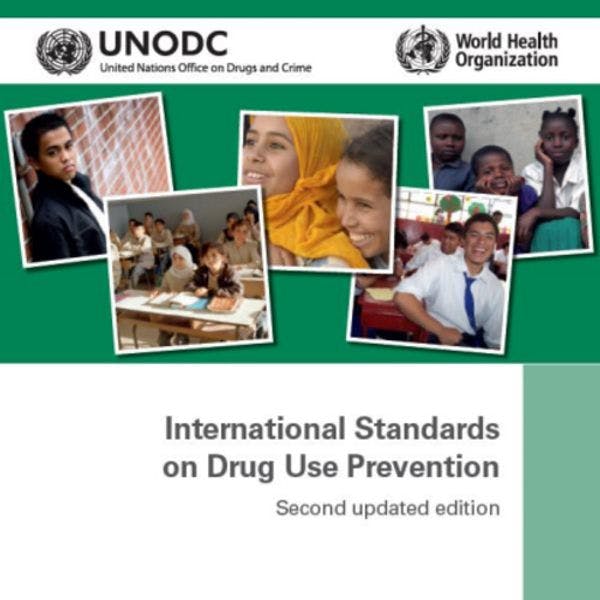Normas internacionales sobre la prevención del consumo de drogas - Segunda edición actualizada
La UNODC y la OMS resumen las pruebas científicas de las que se dispone en materia de prevención y ofrecen recomendaciones al respecto. Más información, en inglés, está disponible abajo.
The first edition of these Standards was published in 2013, summarizing the evidence of drug use prevention at the global level with a view to identify effective strategies, ensuring that children and youth, especially the most marginalized and poor, grow and stay healthy and safe into adulthood and old age.
Member States and other national and international stakeholders recognised the value of this tool, with the Standards acknowledged multiple times as useful basis to improve the coverage and quality of evidence-based prevention. In addition, in 2015, the Member States of the United Nations made a series of wide-ranging commitments in the Sustainable Development Goals to be achieved by 2030 and Target 3.5 pledges to strengthen the prevention and treatment of substance abuse. In April 2016, the Special Session of the United Nations General Assembly on the world drug problem heralded a new era for addressing drug use and drug use disorders through a balanced and healthcentred system approach.
In the context of this renewed emphasis on the health and wellbeing of people, UNODC and WHO are pleased to join forces and present this updated second edition. As in the case of the first edition, the Standards summarize the currently available scientific evidence on the basis of overview of recent systematic reviews, and describe interventions and policies that have been found to improve drug use prevention outcomes. In addition, the Standards identify the major components and features of an effective national prevention system. This work builds on, recognizes and is complementary to the work of many other organizations (e.g. EMCDDA, CCSA, CICAD, CP, NIDA) which have developed other standards and guidelines on various aspects of drug use prevention.
It is our hope that the Standards will continue to guide policy makers and other national stakeholders worldwide to develop programmes, policies and systems that are a truly effective investment in the future of children, youth, families and communities.
